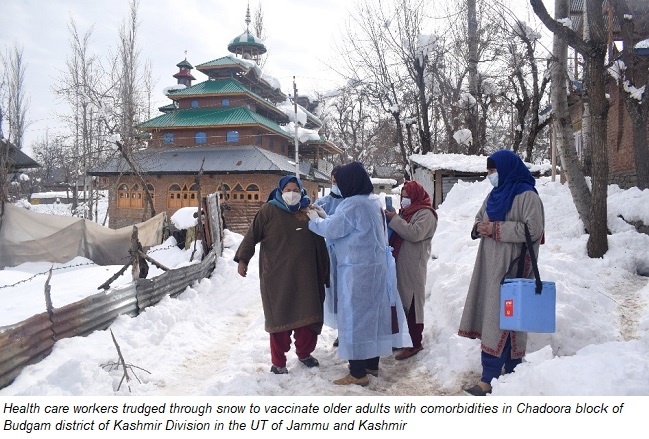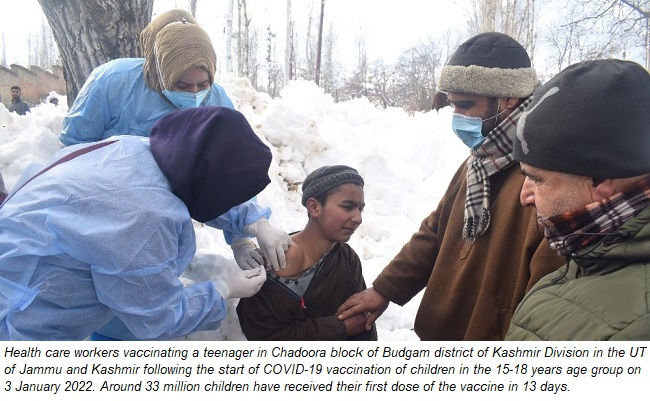India crossed the one-year milestone of the launch of its Covid-19 vaccination drive on 16 January 2022, under which 1.56 billion vaccine doses were delivered within a year to protect people against the pandemic disease. This makes it one of the fastest vaccination drive in the world.
The vaccination drive has been expanded exponentially over the past year. What began as vaccinating health care workers, frontline workers and adults over 60 years was progressively expanded to include people over 45 with co-morbidities, all adults 18 years and older, and since 3 January 2022, teenagers in the 15-18 years age group. “Precaution” or booster doses for at-risk population began on 10 January 2022.
In a little over 10 months of the launch of the vaccination drive, the country crossed the one billion vaccine doses milestone on 21 October 2021. By 16 January 2022, 70% of the adult population has been fully vaccinated and 93% have received their first dose.

The vaccinations were done at a mammoth scale. India delivered the highest single-day vaccinations of 25 million doses on 17 September 2021. The drive is also the world’s largest digital vaccination drive with 9.9 billion registrations though the CoWIN app.
The WHO Country Office for India, particularly the field teams, have supported the national and state government to plan and deliver quality vaccine doses at speed and scale.
“Apart from technical guidance to the government of India in all areas of the pandemic response, WHO’s network of 2600 field officers from various programmes (polio, TB, Neglected Tropical Diseases, etc) based in 23 states but reaching all states and UTs, have been repurposed to provide on-ground support to health authorities at all levels to respond to the pandemic, including vaccinations. WHO field personnel are also working to build vaccine confidence by providing support at the COVID-19 vaccination monitoring sites and by providing feedback to local governments for addressing vaccine hesitancy,” said Dr Roderico H. Ofrin, WHO Country Representative to India.

Vaccines work, as do public health and social measures (PHSM) including use of masks, physical distancing, hand hygiene, avoiding crowds, and ventilation of indoor spaces.
“Avoid crowds – whether it is social gatherings, wedding celebrations, or public meetings and rallies. The more COVID-19 viruses circulate, the more mutations will take place, and the longer the pandemic will last. Each person can contribute to stopping transmission through PHSM, which remain effective tools to end the pandemic,” said Dr Ofrin.
